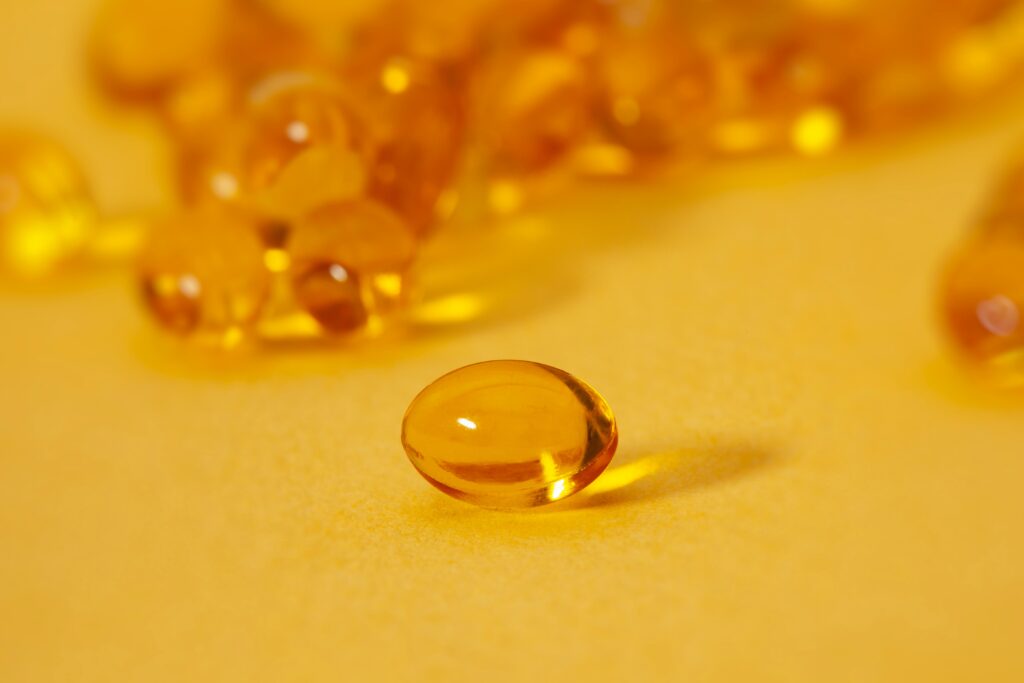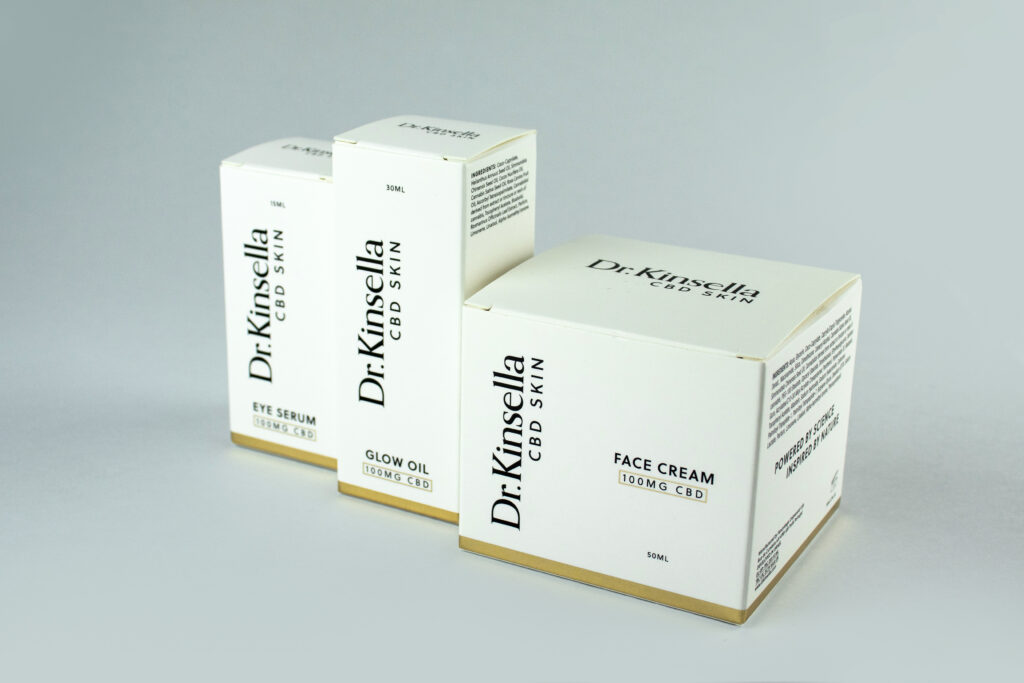GLOW OIL
FACE CREAM
EYE SERUM
Everything You Need to Know About Using Vitamin E Cream and Oil
Key points
- Vitamin E is most commonly known for its benefits for skin health and appearance. It is one of the essential components in skincare that helps to treat conditions like dryness, wrinkles, and sun damage. Vitamin E also promotes skin healing and helps get rid of scars.
- Vitamin E is a great antioxidant that fights free radicals resulting from UV light, pollution, or other causes. This vitamin also improves the production of collagen, an essential protein that refines the skin’s structure. Vitamin E acts as a great moisturiser for the skin and has anti-inflammatory properties that help to heal scars and alleviate hyperpigmentation.
- There are different ways to include vitamin E in your daily routine. You can take it as a dietary supplement, consume it with food, or apply it topically as an oil. You can also use skin care products that contain vitamin E, such as face masks, moisturising creams, and glow oils.
Vitamin E, also commonly referred to as tocopherol, is a potent fat-soluble antioxidant and an essential part of any high-quality skin product or treatment. This vitamin is often sold in the form of capsules and oil, but there are also a lot of skincare products that contain vitamin E in their formula. Vitamin E is an essential vitamin that offers different health benefits, but it’s most commonly used for its positive effect on the skin.

Vitamin E Skin Benefits
Vitamin E is a Potent Antioxidant
The most common reason most people choose to take vitamin E is its antioxidant properties. The molecule helps to destroy free radicals and slow down the ageing process.
Free radicals can be produced as a result of the influence of different environmental factors, including ultraviolet light exposure and pollution. Antioxidants like vitamin E help to fight all the negative effects these hostile molecules can cause in the body.
Vitamin E is fat-soluble, which means it can penetrate the skin and strengthen the outer protective skin barrier.
Vitamin E can also promote the production of collagen – an important structural protein that improves skin elasticity. In high-quality skincare products like Dr. Kinsella face cream and glow oil, vitamin E is combined with vitamin C or other antioxidants to provide even better results.
Vitamin E Moisturises and Soothes Skin
Vitamin E works great for moisturising and soothing the skin. It is recommended for use on all skin types, but it’s especially beneficial for sensitive and dry skin. Its anti-inflammatory properties soothe and nourish irritated and dry skin and give it a natural glow. Scientific studies have also found that vitamin E can help with skin regeneration, a process during which our bodies replace dead cells with healthy ones.
Vitamin E has Healing Properties
Vitamin E is well-known for its impressive healing properties, which can help alleviate acne scars. This effect occurs because vitamin E contributes to the production of red blood cells, which carry oxygen throughout the body. This impacts blood circulation, which has a direct effect on skin structure.
Doctors also commonly prescribe vitamin E before and after surgeries to minimise scarring and promote tissue healing. A lot of people use vitamin E topically to speed up the healing process and to soothe the skin on the lips and cuticles. Topical application of vitamin E can also aid with stretch marks.
Vitamin E is Effective Against Hyperpigmentation
Vitamin E is often prescribed as a treatment for melasma, a condition caused by an excess of skin pigment (melanin) that causes dark spots to appear on the skin. This condition is often triggered by a hormone imbalance, vitamin B12 deficiency, and other causes.
While vitamin E can’t fully heal hyperpigmentation, it can help to manage it, especially when combined with vitamin C.
Vitamin E Use in Skincare
Vitamin E is naturally present in our sebum (skin oil), which creates a natural barrier to protect our skin and keep it moisturised. Vitamin E contained in the skin sebum has an anti-ageing effect on the skin. However, high levels of pollution in our environment and exposure to different hazardous factors such as ultraviolet light (UV) can deplete vitamin E. Thus, it’s important to take a little extra care of our skin. This is when skincare products enriched with vitamin E come in.
When used in moisturisers, vitamin E soothes and prevents the skin from losing moisture, makes it softer, and prevents cell damage. It may also help reduce the skin’s inflammatory response to UV light which includes symptoms like swelling, thickened and red skin. However, keep in mind that vitamin E is not a replacement for sunscreen but rather a product that can provide extra care for your skin.
Vitamin E is generally well-tolerated by all skin types, and skin experts praise it for its virtues, but there are a few things to keep in mind if you’re trying vitamin E skincare products for the first time.
For instance, people with hypersensitive skin may experience an allergic reaction to pure vitamin E. If you have sensitive skin, try to apply a small patch of vitamin E oil on your arm or leg before putting it directly on your face. However, professionally formulated products containing vitamin E usually don’t cause any adverse effects, so we recommend using them instead of vitamin E oil from a pharmacy.

Best Ways to Use Vitamin E for Your Face
Consume Vitamin E Through Your Diet
It’s not a secret that a healthy diet can have a significant positive effect on your skin’s appearance. Getting enough antioxidants in your diet directly affects your overall health and helps improve the condition of your skin, nails, and hair.
Therefore, it’s a good idea to enrich your diet with vitamin E either by eating products that contain this nutrient or taking Vitamin E in tablet form as a dietary supplement. Keep in mind that the daily intake of vitamin E supplements for adults should not exceed 15 milligrams.
Consuming nutrients through healthy food is always a much better option than getting them through supplements. Here are some of the best products to eat if you want to get more vitamin E in your diet:
- avocados
- sunflower seeds
- nuts (especially almonds)
- broccoli
- olive oil
- whole grains
- kiwi
- mango
- spinach
Use Products That Contain Vitamin E
A much easier and better option is to simply use a cream, oil, or moisturiser that contains vitamin E in its formula. That way, you can enjoy all the benefits without clogging up your pores. If you’re looking for safe and effective products, try to find an option that contains both vitamin C and vitamin E. These two antioxidants work very well together and compliment each other beautifully. Glow oil and face cream from the Dr. Kinsella brand are great examples of products that combine vitamins C and E in their formula.
Dr. Kinsella glow oil is an excellent product that will nourish and soothe your skin. In addition to vitamins E and C, the product contains Sativa and rosehip oils and natural fatty acids. Unlike plain vitamin E oil, it doesn’t feel greasy on the skin. Instead, it lends your skin a healthy and beautiful glow. Dr. Kinsella glow oil will become an excellent addition to your daily skincare routine. In addition to nourishing and moisturising the skin, it will also help refine the skin texture and prevent cell ageing.
Another product you can try to get all the benefits of vitamin E is Dr. Kinsella face cream. Face creams provide a quick and easy way to nourish and soothe the skin. And a face cream that contains vitamin E is an amazing addition to any morning or evening skincare routine.
Dr. Kinsella face cream will make your skin feel supple and moisturised immediately after you apply it. This product will also help to protect your skin from UV exposure and pollution because it prevents harmful substances from penetrating the skin and causing irritation, thus helping your skin stay young and healthy as long as possible. However, you should still use a dedicated SFP product, as the Dr. Kinsella face cream is not a replacement for sunblock.
FAQs
Can you apply vitamin E oil directly to the skin?
Yes, you can apply vitamin E oil directly to your skin. However, it’s best to opt for skincare products that contain vitamin E as opposed to using pure oil, as it can clog your pores and cause acne. Professionally formulated lotions, face creams, glow oils, and gels usually work much better due to the combined effect of different ingredients.
Does vitamin E improve skin?
Vitamin E has been scientifically proven to be moderately effective in treating hyperpigmentation, dark spots, and acne scars. Vitamin E promotes the production of collagen, which gives the skin its elasticity. It also affects blood circulation, which promotes healing.
Can I use vitamin E oil on my face every night?
You can usually use skincare products enriched with vitamin E every night. However, if you use pure vitamin E oil, it’s recommended to apply it once or twice a week at most. This is because it’s a fat-soluble vitamin that can build up in the pores. This effect doesn’t occur when you use vitamin E skincare.
Does vitamin E oil clog pores?
Yes, if you use pure vitamin E oil too often, it can clog up your pores because the oil itself is very thick. People who have oily or acne-prone skin can often see an increase in blemishes when they use pure vitamin E oil. Thus, it’s recommended to opt for lighter skincare products that contain vitamin E rather than using pure oil.
